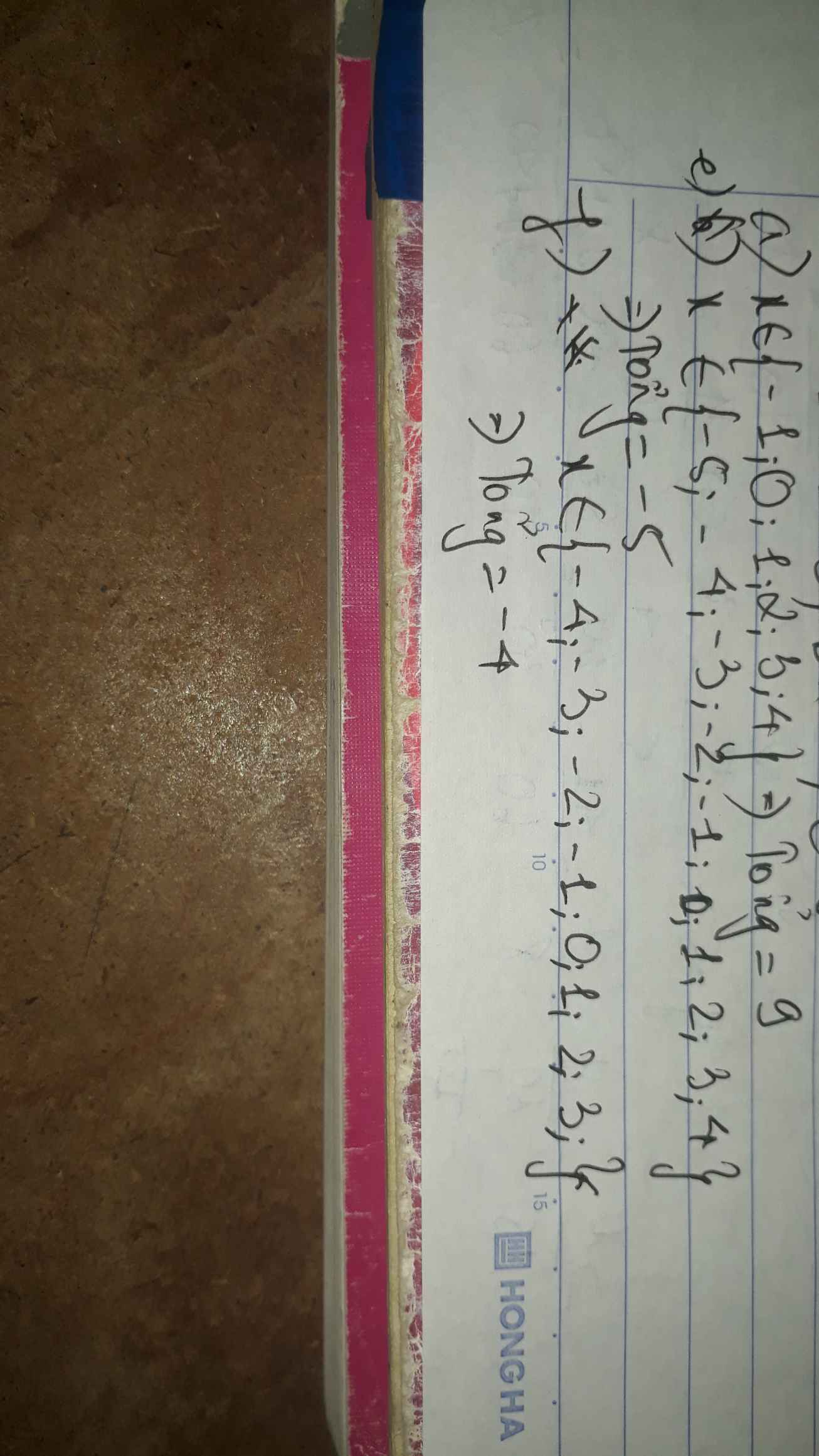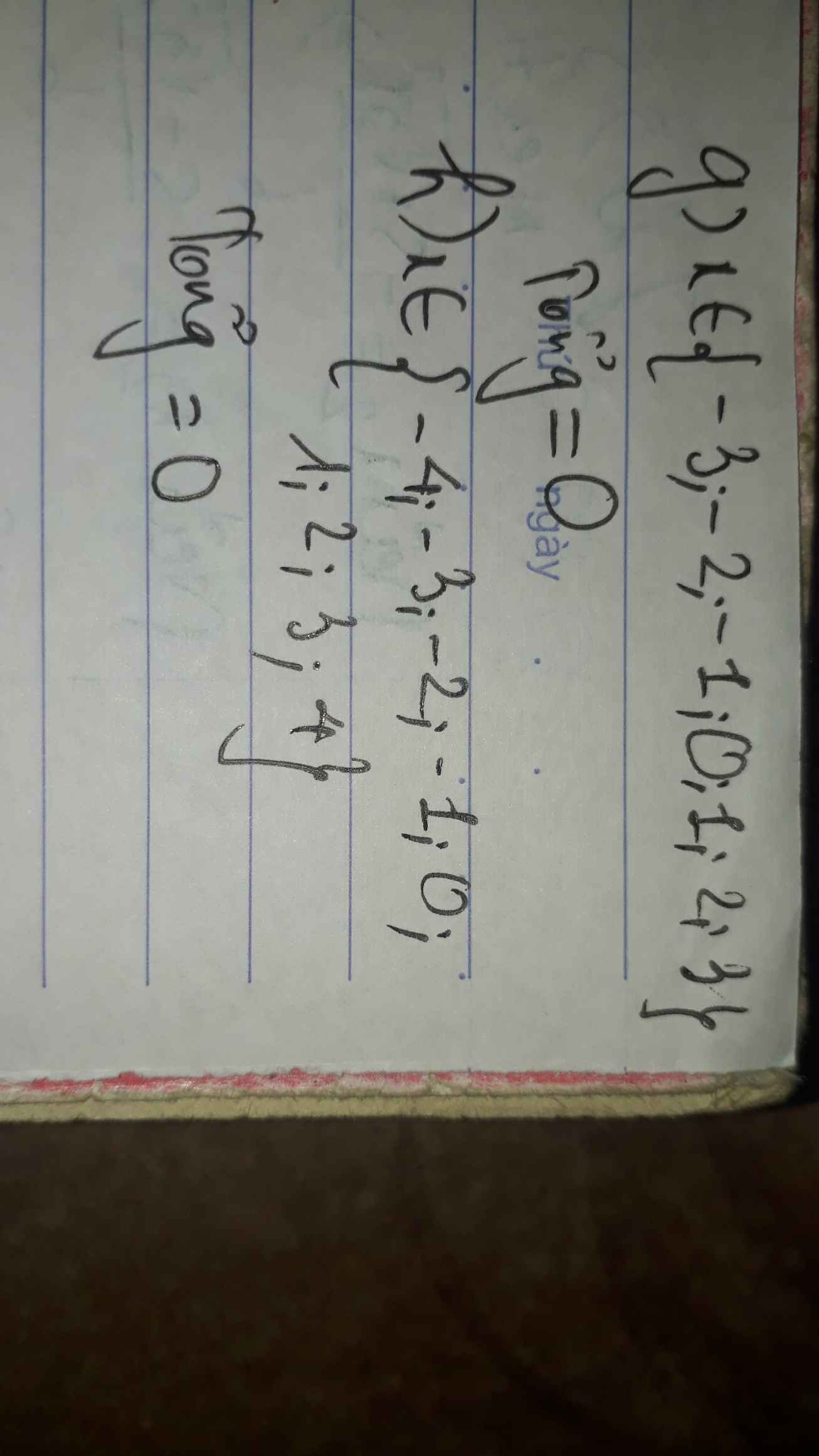
Hãy nhập câu hỏi của bạn vào đây, nếu là tài khoản VIP, bạn sẽ được ưu tiên trả lời.


Với X = 5, ta có:
X - 4 + X - 4 = 2 × (X - 4) = 2 × (-5 - 4) = -18

Lời giải:
Với $x=5$ thì:
$x-4+x-4=2\times (x-4)=2\times (5-4)=2\times 1=2$

a) \(4^x+4^{x+1}=80\)
\(\Rightarrow4^x+4^x.4=80\)
\(\Rightarrow4^x.\left(1+4\right)=80\)
\(\Rightarrow4^x.5=80\)
\(\Rightarrow4^x=16\)
\(\Rightarrow4^x=4^2\)
\(\Rightarrow x=2\)
Vậy x = 2

1. x = \(\left\{-1;0;1;2;3;4\right\}\)
2. x = \(\left\{-5;-4;-3;-2;-1;0;1;2;3;4\right\}\)
3. x = \(\left\{-4;-3;-2;-1;0;1;2;3\right\}\)
4. x = \(\left\{0;1;2;3\right\}\)
5. x = \(\left\{0;1;2;3;4\right\}\)

\(4^{x+2}-5\cdot4^x=176\)
\(\Rightarrow4^x\cdot4^2-5\cdot4^x=176\)
\(\Rightarrow4^x\cdot\left(16-5\right)=176\)
\(\Rightarrow4^x\cdot11=176\)
\(\Rightarrow4^x=\dfrac{176}{11}\)
\(\Rightarrow4^x=16\)
\(\Rightarrow4^x=4^2\)
\(\Rightarrow x=2\)
\(4^{x+2}-5.4^x=176\)
\(=>4^x.4^2-5.4^x=176\)
\(=>4^x.\left(4^2-5\right)=176\)
\(=>4^x.\left(16-5\right)=176\)
\(=>4^x.11=176\)
\(=>4^x=176:11\)
\(=>4^x=16\)
\(=>4^x=4^2\)
\(=>x=2\)

\(A=4x4x...x4\left(2023.chũ.số.4\right)\)
\(A=4^{23}=4^{20}.4^3=\overline{....6}x\overline{....4}=\overline{....4}\)
\(B=3x15x23x...x2023\)
\(B=\overline{....5}\) (trong tích có các số có tận cùng bằng 5)

a: =>x-2/5=3/4:1/3=3/4*3=9/4
=>x=9/4+2/5=45/20+8/20=53/20
b: =>x-2/3=7/3:4/5=7/3*5/4=35/12
=>x=35/12+2/3=43/12
c: 1/3(x-2/5)=4/5
=>x-2/5=4/5*3=12/5
=>x=12/5+2/5=14/5
d: =>2/3x-1/3-1/4x+1/10=7/3
=>5/12x-7/30=7/3
=>5/12x=7/3+7/30=77/30
=>x=77/30:5/12=154/25
e: \(\Leftrightarrow x\cdot\dfrac{3}{7}-\dfrac{2}{7}+\dfrac{1}{2}-\dfrac{5}{4}x+\dfrac{5}{2}=0\)
=>\(x\cdot\dfrac{-23}{28}=\dfrac{2}{7}-3=\dfrac{-19}{7}\)
=>x=19/7:23/28=76/23
f: =>1/2x-3/2+1/3x-4/3+1/4x-5/4=1/5
=>13/12x=1/5+3/2+4/3+5/4=257/60
=>x=257/65
i: =>x^2-2/5x-x^2-2x+11/4=4/3
=>-12/5x=4/3-11/4=-17/12
=>x=17/12:12/5=85/144


x + 8432 : 4 = 15528
x + 2108 = 15528
x = 15528 - 2108
x = 13420
Chúc bạn học thật tốt !
x+2108=15528
x = 15528-2108
x = 13420